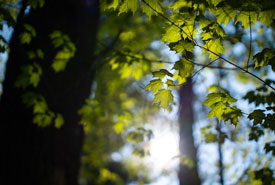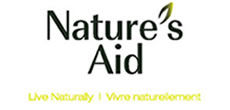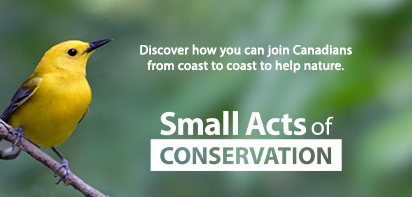Mary West Nature Reserve

Sugar maple tree at the Mary West Nature Reserve. (Photo by Chelsea Marcantonio/NCC staff).
Located in Trent Hills, the Mary West Nature Reserve contributes to the ecological integrity of the Trout Creek and Trent River watersheds by conserving and enhancing wetland and forest communities. The 38-hectare property is home to many species at risk, including butternut, wood thrush and snapping turtle. Donated to the Nature Conservancy of Canada (NCC) by the estate of Mary West in 1991, the property protects an intact natural woodland in perpetuity. The reserve provides carbon storage, flood mitigation and clean drinking water to the local community.
NCC is restoring old farm fields here into a “seed orchard” of dense native wildflower plantings and grassy meadows. This will result in the reserve becoming a source of native seed for local tallgrass prairie and oak savannah restoration projects across Northumberland County.
Points of interest
- wetland of Trout Creek
- grasslands
- forest
Species to look out for
- wood thrush
- veery
- wood thrush
- pileated woodpecker
- southern flying squirrel
Contact information
Visitors can call 1-877-231-3552 or email ontario@natureconservancy.ca to inquire about the trails and access points at Mary West Nature Reserve.
Visitor information
Visitors are welcome to visit the Mary West Nature Reserve and experience its beautiful hiking trails. The nature reserve is privately owned and managed by NCC. When visiting the property, please:
- Travel on designated paths only.
- Be considerate and respect the wildlife and other visitors.
- Dispose of waste properly.
- Leave what you find.
- Plan ahead and prepare.
- Keep pets on a leash at all times.
Other trail safety considerations:
- Visitors to NCC properties do so at their own risk.
- Trails are open year-round, unless otherwise signed.
- Trail conditions vary seasonally and winter conditions can be icy.
- Poison ivy is very prevalent in some areas.
- Black-legged ticks are present.
Work NCC is doing nearby
- Rice Lake Plains Natural Area: Since 2002, NCC has been part of the Rice Lake Plains Partnership, a collaborative of private landowners, Alderville First Nation, conservation groups and governments that have banded together to protect and restore the Rice Lake Plains.
- Hastings Wildlife Junction: As of summer 2023, over 10,000 hectares have been protected in the Hastings Wildlife Junction. While this announcement marks a significant milestone, there is still more to be done. NCC continues to seek opportunities to expand on the protected lands around Hastings Wildlife Junction, where it is exceedingly rare for large landscape-scale conservation opportunities to exist. NCC is encouraging people, businesses and foundations to help accelerate this project.






